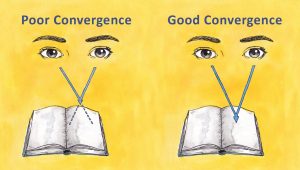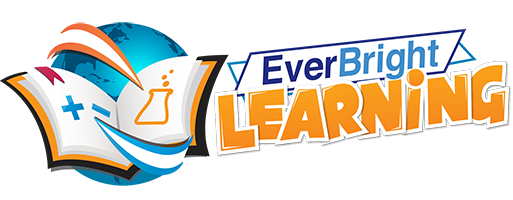
Does your child struggle to read and write, often mixing ‘b’s with ‘d’s when writing, skipping words or lines when reading? Lack focus or concentration, preferring to stare out the window or lie with one eye covered when writing?
These are tell-tale signs that a child has convergence insufficiency, where they are unable to focus both eyes on a single point. Convergence is a skill that develops from birth, starting with a baby focusing on their mother when they are feeding. It then develops through crawling and then playing outside – throwing and catching balls, climbing trees, etc.
But what happens if, for whatever reason, your child hasn’t developed sufficient convergence? Then, what they are seeing is very different from what you or I see.
Their eyes, like ours send two images to the brain. Unlike ours, these images are significantly different as the eyes are focusing at 2 different points. The brain then works out which image to use, often flicking between the images or uses both, creating ‘double’ vision. Your child may not even be aware that they are seeing things differently, after all this is the way they have always seen.

You may have already noticed that they struggle to catch or hit a ball. Having convergence insufficiency means they cannot judge distance as they don’t see in 3D. It’s really when they start to read and write that parents start to notice there’s a problem.
Your child is being asked to focus on a letter or word. As their eyes flicker all over the page, they lose track of where they were, skipping words and lines, reversing letters. Their eyes get tired and they will do almost anything but look at the page.
Unfortunately, convergence isn’t tested for by regular opticians so this problem usually remains undiagnosed. And yet, to overcome convergence insufficiency takes just 10 minutes a day and you can start today.
Simple exercises like pencil push ups, Brock string and dot cards will start to make a difference. However, they rely on your child telling you if they’re seeing double and, if not kept up, convergence can slip back. Alternatively, there are computer programs which don’t rely on the child telling you what they’ve seen. Computer programs can make a permanent improvement to your child’s vision.
Once your child has trained their eyes to focus, they’ll be able to then learn how to scan from left to right – a skill we all had to learn when we started to read.
Convergence insufficiency can be overcome and will make a huge difference to your child. After 2-3 weeks, you’ll see improvements in attention span and their ability to focus on the page.

